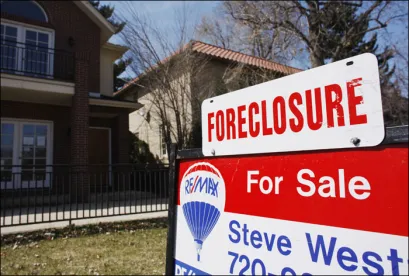Foreclosing a mortgage in Massachusetts can be a pain. Among the many, very technical requirements, a foreclosing mortgagee must be able to prove that it is the holder, or the authorized representative of the holder, of the original mortgage note before it can begin the foreclosure process; the mortgagee must be able to prove that it is either the original mortgagee or the holder of a valid written assignment of the mortgage; the mortgagee (or, more likely, its attorney) must publish in a newspaper and mail a series of notices on somewhat demanding schedules. In the case of residential foreclosures, the mortgagee must provide the homeowner with a 150-day right to cure the mortgage default, and, in some circumstances, the right to a mortgage modification .
Because Massachusetts is a non-judicial foreclosure jurisdiction, the mortgagee does not generally even get the comfort of a court order confirming that it has complied with the required formalities or otherwise confirming that the foreclosure is effective once completed (though where the borrower is an individual, the mortgagee will obtain a declaratory judgment from the Superior Court for the sole purpose of confirming that the borrower is not entitled to the benefits of the Servicemembers Civil Relief Act).
If any one of the numerous requirements of a foreclosure is missed, it can result in the foreclosure being deemed void…
If any one of the numerous requirements of a foreclosure is missed, it can result in the foreclosure being deemed void, sometimes years after the original foreclosure, and sometimes even after an arms-length, third party has purchased the property from the foreclosing lender. A stark example of this occurred in the case of U.S. Bank v. Ibanez, in which the Massachusetts Supreme Judicial Court invalidated potentially thousands of mortgage foreclosures retroactively in instances where the foreclosing mortgagee is unable to demonstrate that it received a written assignment of the mortgage prior to instituting foreclosure proceedings. At best, this state of affairs often leads to increased time and expense of conducting foreclosures, and at worst, having to re-do certain foreclosures.
On November 25, 2015, Governor Baker signed a new act into law An Act Clearing Titles to Foreclosed Properties, 2015 Mass. Acts ch. 141, which went into effect on December 31, 2015. This new act essentially places a three-year statute of limitations on challenging a foreclosure sale. Assuming the required foreclosure affidavit is recorded in the statutory form following a foreclosure sale, that affidavit shall be “conclusive evidence in favor of an arms-length, third-party purchaser for value at or subsequent to the foreclosure sale” that the foreclosure sale was properly conducted after the later of (a) three years after the date the affidavit is recorded in the appropriate registry of deeds, (b) one year after the effective date of the act (for foreclosures that occurred prior to the statute being passed), or (c) a challenge to the validity of the foreclosure is raised as a defense or counterclaim (presumably to an eviction suit) by any party who both resides in the foreclosed property as a principal residence and was the holder of a record interest in the property as of the time of the foreclosure.
While this statute may help clear title for some third-party purchasers of foreclosed real estate, the extent to which it will benefit lenders seems minimal. Initially, the statute is explicit that a foreclosing lender or its affiliate holding the foreclosed real estate as so-called “REO” property cannot take advantage of the statute—only a third-party purchaser. In addition, the statute provides that it does not relieve a foreclosing lender of any actual or punitive damages for claims arising out of a failure to comply with foreclosure law. Finally, in addition to a foreclosure deed and affidavit (discussed above), a foreclosing lender will usually record a certificate of entry. If the certificate of entry is properly completed and recorded, it also provides a three-year statute of limitations to many types of challenges to the foreclosure. This certificate of entry procedure, with its three-year time limit, has been in place in its current form since 1991 and apparently has not done enough to solve the problem that the new act seeks to address. Time will tell if, and to what extent, the new statute will affect foreclosure practices, procedures, timelines, title insurance underwriting guidelines, or willingness of third-party purchasers to buy foreclosed properties.




 />i
/>i

